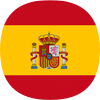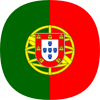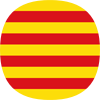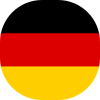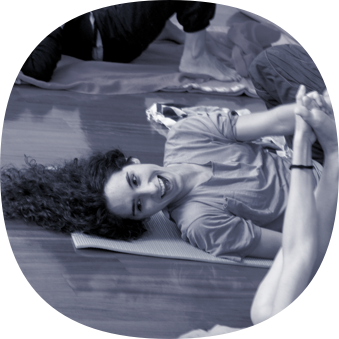Training Course — August 2010 to October 2014
Madrid 1
From Madrid to Heaven! It is one of the most popular sayings about the city. The sky of Madrid has an intense blue colour that makes it characteristic.
The Spanish capital is a cosmopolitan city that combines history and modernity, historic monuments, museums (with three major art galleries in the world: Museo del Prado, the Thyssen-Bornemisza and the Reina Sofia), theaters, shopping areas, restaurants (from typical taverns to the most innovative restaurants Michelin starred), parks and gardens, etc., are the main options to have some entertainment in Madrid.
The Madrilenians’ welcoming and cheerful disposition will make it easy for you to feel right at home.
The location of our Feldenkrais training programs in Madrid is located only a few metro stops away from the city center in a calm neighborhood called Prosperidad. There are shops, restaurants and parks in walking distance and the city’s infrastructure makes it easy to reach the training by metro, bus or car.
The Madrid training segments are spread evenly throughout the year and we find that this makes a convenient training format for those who seek a balance with their work life.
With the full support of the School of Osteopathy of Madrid where our training courses are hosted, we benefit from professional support throughout the program and ample space at our disposal.
Segment Structure
Executive Team
Participation requirements
The participants of our Feldenkrais Training Programs come from different professional backgrounds. Make sure to provide us with information about your vocational training or degree when signing up. Please contact us or see our FAQ if you are not sure whether you qualify.
This event is offered and organized by
Instituto Feldenkrais España S.L.U.
Fee
85,00 € / day.
Course Language
English and Spanish
Course dates and trainers
If you cannot attend a day/segment, you can always make up for it later.
First Year — 2010 to 2011
Training Location:
Espacio Ronda Madrid, Ronda de Segovia 50, 28005 Madrid, SpainSegment Price:
850,00 €Training Location:
EOM Auditorio, Calle Saturnino Calleja 1, 1º dcha., 28002 Madrid, SpainSegment Price:
425,00 €Training Location:
EOM Auditorio, Calle Saturnino Calleja 1, 1º dcha., 28002 Madrid, SpainSegment Price:
850,00 €Training Location:
EOM Auditorio, Calle Saturnino Calleja 1, 1º dcha., 28002 Madrid, SpainSegment Price:
850,00 €Training Location:
EOM Auditorio, Calle Saturnino Calleja 1, 1º dcha., 28002 Madrid, SpainSegment Price:
425,00 €Second Year — 2012
Training Location:
EOM Auditorio, Calle Saturnino Calleja 1, 1º dcha., 28002 Madrid, SpainSegment Price:
1275,00 €Training Location:
EOM Auditorio, Calle Saturnino Calleja 1, 1º dcha., 28002 Madrid, SpainSegment Price:
850,00 €Segment October 2012
01.10. – 18.10.2012 (15 Days) Anne Candardjis, Stephen Rosenholtz, Ph.D., Paul NewtonTraining Location:
EOM Auditorio, Calle Saturnino Calleja 1, 1º dcha., 28002 Madrid, SpainSegment Price:
1275,00 €Third Year — 2013
Training Location:
EOM Auditorio, Calle Saturnino Calleja 1, 1º dcha., 28002 Madrid, SpainSegment Price:
1275,00 €Training Location:
EOM Auditorio, Calle Saturnino Calleja 1, 1º dcha., 28002 Madrid, SpainSegment Price:
850,00 €Training Location:
EOM Auditorio, Calle Saturnino Calleja 1, 1º dcha., 28002 Madrid, SpainSegment Price:
1275,00 €Fourth Year — 2014
Training Location:
EOM Auditorio, Calle Saturnino Calleja 1, 1º dcha., 28002 Madrid, SpainSegment Price:
1275,00 €Training Location:
EOM Auditorio, Calle Saturnino Calleja 1, 1º dcha., 28002 Madrid, SpainSegment Price:
850,00 €Training Location:
EOM Auditorio, Calle Saturnino Calleja 1, 1º dcha., 28002 Madrid, SpainSegment Price:
1275,00 €Additional information
Joining a training course that has already started
The courses are designed in such a way that enrollment is open during the whole of the first year of the course. Missed days will have to be made up in subsequent courses.
Making up for missed days
You can make up for missed days in another training program. For specific details, contact your organizer who will help you (together with the educational director) to establish a personal make up plan. For more info, please read the FAQ.
